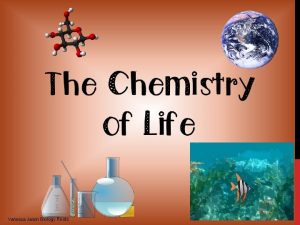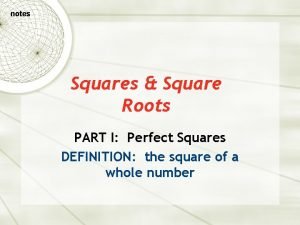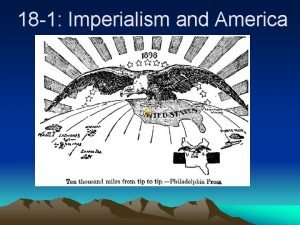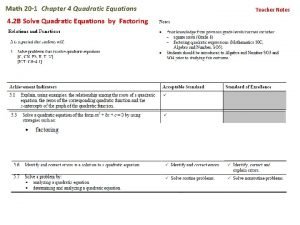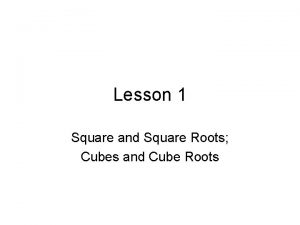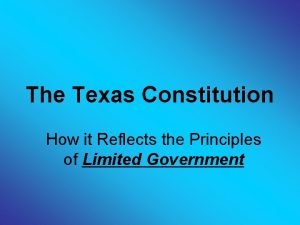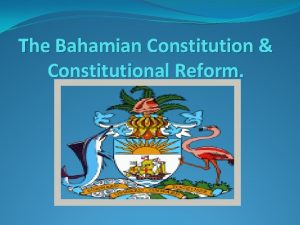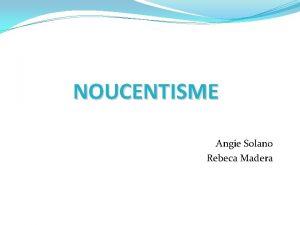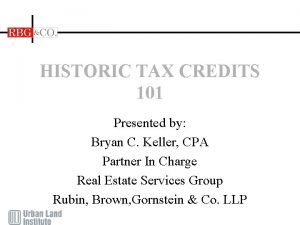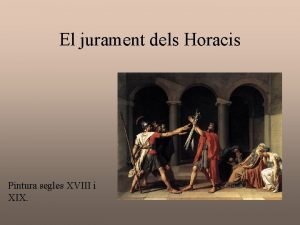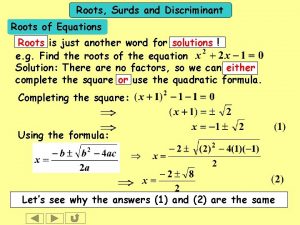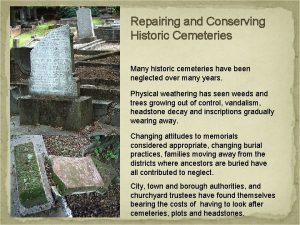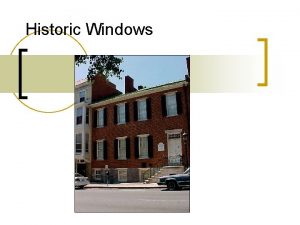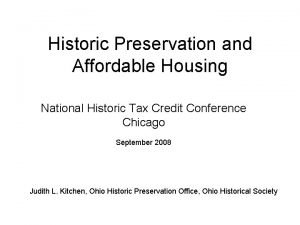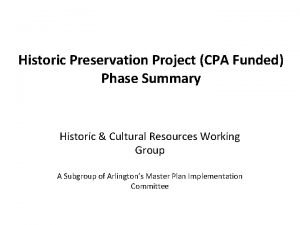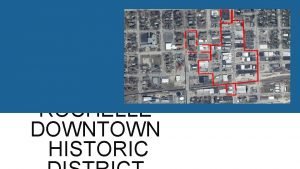Chapter 3 Constitution Historic Roots of the Constitution

















- Slides: 17

Chapter 3 Constitution

Historic Roots of the Constitution! • Colonists FEAR a Tyrant • Solution: Separation of powers • A REPUBLIC is created… Voters authority through elected representatives • Must Have? • Informed and active citizens for this to work!

Structure of the Constitution • Preamble • Articles • I, III, IV, V, VII • Amendments • 1 -27 7, 000 words with Major Principles limited government federalism NOT = to federal government (Washington DC) national + state powers- both pass laws directly separation of powers checks and balances judicial review popular sovereignty

Exit Slip • What did you learn today?

Legislative branch • Article I section 8 expressed powers- directly stated what congress can do • Enumerated powers- specified by numbers 1 -18 • Elastic clause- Congress allowed to stretch its powers to meet the needs of situations that Founders could not anticipate “all laws necessary and proper”

Executive Branch The president has 8 roles or “hats” for our country. (See quizlet flashcards) Because of these duties the president needs a cabinet and staff Federal bureaucracy is all of the executive branches employees

Amending the Constitution • “We must never forget that it is…a Constitution intended to endure for ages to come, and consequently to be adapted to the various crises of human affairs. ” – John Marshall 1819


Proposing Amendments – DIRECT amending 2/3 vote in the House and Senate Or 2/3 states to ask Congress for a special convention 1963 states petition (to appeal to) Congress about a Supreme Ct case about state elections • 1980 s states petition about balanced budget amendment- federal spending cannot exceed its income • •

Ratifying • ¾ states house and senate (Frankfort, KY) pass • States hold a special convention ¾ convention passes • 21 st amendment only • Congress lets each state decide how delegates would be elected to the ratifying convention • The time limit for states to ratify an amendment is 7 years; if time expires the whole ratification process is dead

Indirect ways the Constitution Changes • Congress passes laws that clarify the constitution • Examples: Article 1 Congress “lays and collects taxes” • Article II expanded executive branch (cabinet, boards, commissions called…? ) • Article III as the nation expanded, Congress created new federal courts and rules

Indirect changes • Impeaching federal officials “high crimes and misdemeanors” • By deciding to investigate or impeach, Congress is changing the constitution • 60 people have been investigated including Andrew Johnson, Richard Nixon, Bill Clinton

Informal Presidential Changes • President dies… • VP takes over… • Do they become president or act as president? • William Henry Harrison died 1841 in office, VP John Tyler took oath, 25 th amendment establishes order • Executive agreement is a way to get around Senate approval of a treaty between countries because it is merely an agreement between heads of states • Presidents are aggressive in requesting legislation from Congress aka Obamacare

Court Decisions • Judicial restraint- courts should avoid taking initiative on social and political issues • Judicial activism- believe the courts should actively help settle the difficult social and political questions of the day. • Plessy v Ferguson; Brown v. Board

Ratifying the Constitution • The constitutional convention needed to be approved by 9/13 states to become “law” • How did approval process for ratifying differ from altering the Articles of Confederation? Federalists Favored constitution (merchants) 1) w/o strong national govt. anarchy; protect abroad +internal issues. 2) 8/13 already had Bill of Rights in state constitutions. Promise to add Bill of Rights when govt. meets Anti. Federalists Opposed constitution (farmers/laborers) 1) drafted in secret- extralegal- not sanctioned by law; Congress approved revised Articles not thrown out. 2) took important powers from states. 3) lacks bill of rights! New Constitution!!!

Progress towards ratification • Small states happy w/equal rep in new Senate • Virginia and new York were not needed in # but in influence… “for Constitutional success” • Washington 1 st president, Adams VP- NYC • Proposed 12 amendments- states ratified 10 - called…

8 Amendments of the Bill of Rights • 8 groups • 1) analyze- why is it important? • 2) write in your own words • 3) illustrate…that’s a picture • 4) how it impacts our lives today To study http: //quizlet. com/4420202/first-8 -amendments-flashcards/
 Biology roots vanessa jason
Biology roots vanessa jason Perfect squares notes
Perfect squares notes Existence and uniqueness of square roots and cube roots
Existence and uniqueness of square roots and cube roots The roots of american imperialism economic roots
The roots of american imperialism economic roots Quadratic equation gcf
Quadratic equation gcf Cubed numbers list
Cubed numbers list Texas constitution vs us constitution
Texas constitution vs us constitution Nc constitution vs us constitution
Nc constitution vs us constitution Constitution what is constitution
Constitution what is constitution Lesson 1 principles of the constitution
Lesson 1 principles of the constitution Context historic noucentisme
Context historic noucentisme Historic iris identification
Historic iris identification Historic tax credits 101
Historic tax credits 101 Contexto social del renacimiento español
Contexto social del renacimiento español New markets tax credit 101
New markets tax credit 101 Break even point in dollars
Break even point in dollars Historic scotland volunteering
Historic scotland volunteering El jurament dels horacis context historic
El jurament dels horacis context historic
